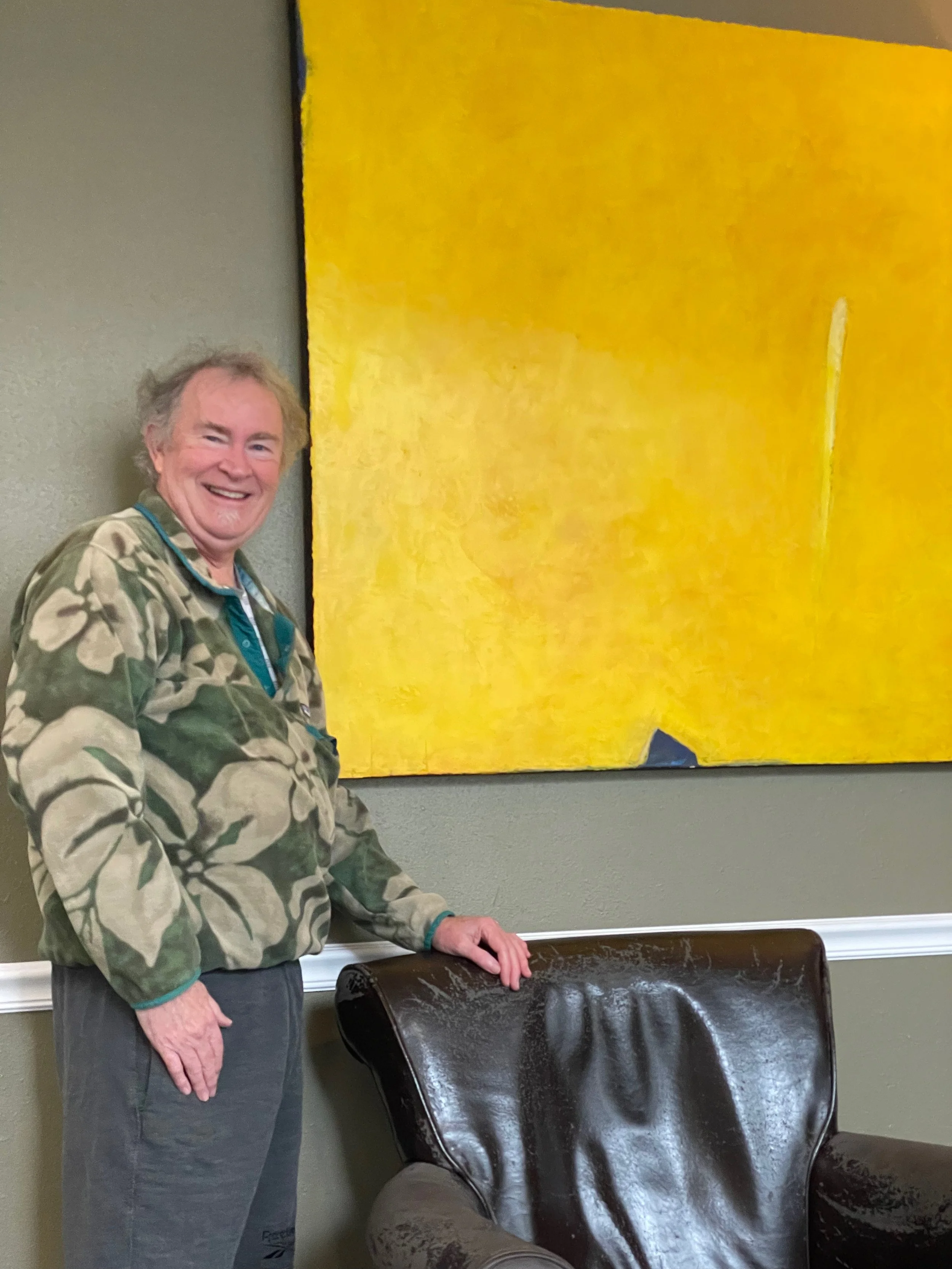Finding a new voice
By Gretchen Ammerman
For the TODAY
When one gets out of your own way, I believe the brain knows what the hell it is doing.
— Tracy McEwan, from current work in progress
For painter, photographer and educator Tracy McEwan, life was expression.
And then, at age 51, a massive stroke tried to take that away.
After two weeks in a coma, McEwan emerged, alive and ostensibly well, but a shadow of his former self.
As a friend lovingly joked once McEwan was largely recovered, the stroke had finally given his friends a chance to get a word in edgewise. Because McEwan, a formerly extroverted type who was equally comfortable showing the process for his increasingly popular abstract paintings to one person or one hundred, speaking became a skill he would have to start re-learning almost from scratch.
And so, as his speech continues to crawl back to something “normal,” McEwan has turned to a different form of expression, one he had long longed to try but had always been too busy for: writing.
“It takes me so long now to finish a story when I’m talking,” he said. “I’d always wanted to write, and now, it’s actually a more comfortable way for me to express my thoughts because it allows me a slower approach and a way to articulate.”
However, the story isn’t as simple as man has stroke, man turns to writing.
McEwan’s schedule was pretty consistently full, as friends pitched in to help him complete his daily walks, make it to his therapy appointments and even re-learn how to drive.
And then one day, hanging out in a coffee shop where some of his abstracts hung, a casual comment turned out to be all he needed to start typing.
“A young woman was commenting on my painting, ‘In Mali,’ and her comments were, shall we say, not positive,” McEwan said. “The teacher in me immediately started thinking about how I could respond to her in a way that would help her appreciate the abstract style and my motivations behind the painting more. Don’t get me wrong, I don’t need to have everyone like my paintings, I was more just wondering what I could have said to her to invite her into my images in a way that would help her appreciate at least my intentions. But I wasn’t ready to have her experience the time it takes me to complete a thought, so I started writing an essay of what I would have liked to say to her.”
As McEwan began writing about that painting, he also began going through images of other paintings and photographs from his collections and began to realize something: long-term memories that he thought were lost forever were, in fact, still intact.
“I had thought I had permanently lost most of my memories,” he said. “But every time I saw one of my paintings or photographs, memories came flooding in. It’s so wonderful to have this body of work and it goes beyond words how important my photos are for me. It was at that point I realized I wanted to do more than write a short essay about one painting.”
At the time of this writing, McEwan's “essay” sits at roughly 400 pages, and he is not nearly done. He says that putting less pressure on himself was a huge help.
I also found, when he allowed me to read the draft of his first few chapters, that on the page as in life, he’s very funny:
My wanting to share a few thoughts about creating images revolves around my experiences. But now as I re-read some pages from later in this endeavor, I wonder if writing as if in ‘a stream of consciousness method’ isn’t somehow better for me. But perhaps not the reader. I don’t know, and I will possibly change my mind as we go along. Welcome to my world of creation. Sorting through several possibilities only to arrive at the wrong point.
You can often catch the artist walking around Lincoln City, which he now does without any noticeable hitch in his git’along,
And if he’s not on the move, he’s likely painting, taking photos or, more often than not, working on his book.
Because the stroke ultimately was unable to rob McEwan of his creative voice — it’s just given him a new one.

